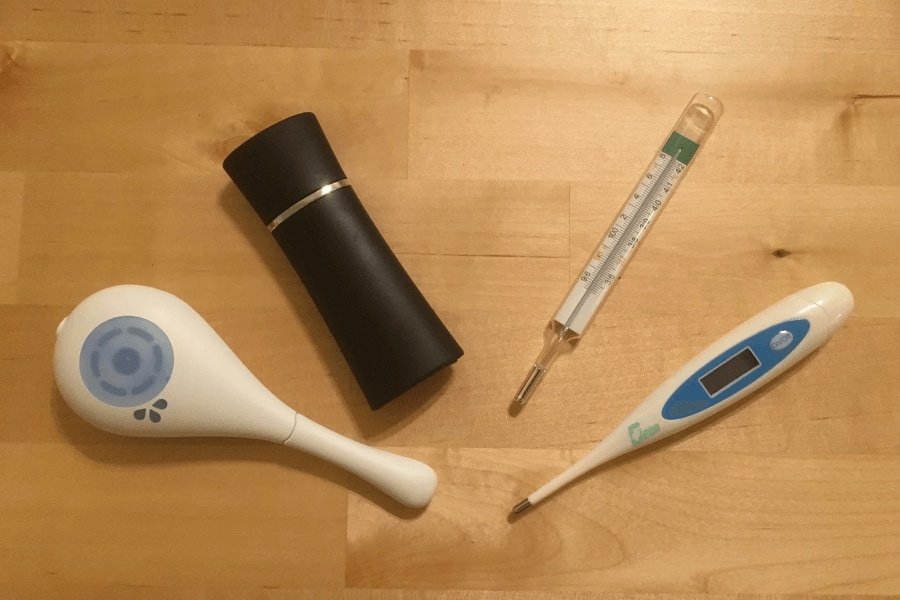Have you every realised that your period was late and then your mind has gone into overdrive trying to figure out why? If you know you can’t be pregnant, often your mind will jump to potentially scary diagnoses which Dr Google will substantiate or make worse.
I have had a number of panicked phone calls from clients worrying that they have no period, but they know for various reasons that they can’t possibly be pregnant. So what is going on? If you period is late there are a few possible reasons it has gone AWOL.
Assuming you aren’t on the pill, breastfeeding or entering peri-menopause, here are a few reasons below.
Why Your Period Might Be Late Or Missing
1. Stress
Stress is a huge issue when it comes to our cycles. If you really under a lot of sudden stress, it will often turn off your reproductive system. However, chronic, long term stress can stop you from ovulating, causing a massive delay in when your period arrives.
Travel, changes in routine as well as pressures and every day events can cause your stress hormones to kick in and disrupt your cycle.
2. Body Fat
Your body needs so much fat in order to ovulate and have a functioning menstrual cycle. In women with low body mass, they may find it difficult to conceive and women who are very overweight may also have issues. Whilst many people recommend specific body fat percentages or BMI ranges, it is a bit more nuanced from person to person, so be aware of what happens to your period at different weights and different body fat percentages if you are monitoring these.
You will eventually find you have a sweet spot in terms of your healthy weight range for a healthy looking menstrual cycle and as you make it further away from that sweet spot, you will find your cycle starts changing, giving you big pointers as to what is good for your body.
3. Exercise
This is again linked to body fat and is known to cause amenorrhoea when done in excess. I particularly like this study as it acknowledges the issues with bones as well when you aren’t menstruating (ovulation helps to build bone mass, which is worrying if you go on the pill before reaching peak bone density in your 30s). If you do a lot of heavy cardio every day, you aren’t going to produce enough sex hormones to get your cycle working. Consider varying your exercise and getting more resistance based exercise in to your schedule.
Again this is an area where you have to find your sweet spot as it is personal for every person, which is one of the reasons I recommend charting your cycle.

4. Hormonal Imbalance
A number of hormonal imbalances can stop ovulation from happening and therefore stop your periods from occurring. The more commonly known ones are PCOS and hypothyroidism. However, having too higher levels of oestrogen or blood sugar imbalances can also cause issues with ovulating and periods. Hyperthyroidism can also cause periods to get lighter and disappear so getting all your hormones in check is crucial for regular periods.
5. Medications
Some medications can halt ovulation or stop periods. If you aren’t sure if yours is one, ask your doctor or read the patient safety information leaflet that was provided with your medication. You can also find this information out from a good pharmacist. Some common ones you may use include corticosteroids and NSAIDs (Non Steroidal Anti-Inflammatory Drugs) which include aspirin, and ibuprofen.
6. Illness
This is a common one when your body is wiped out by an illness. When your body is ill, it puts all its energy into healing and diverts all extra resources such as energy and nutrients to the areas that need help. Parts of your body not essential to survival such as your reproductive cycle, hair and nails will take a noticeable hit.
Sometimes your body will stop your menstrual cycle completely, other times, it may be doing little bits here and there resulting in weird bleeds and hormonal hiccoughs. Once you have recovered though, you should expect to see a return of fertility with periods, cervical fluid and other signs.
If you don’t see a return to fertility post recovery, then it’s worth speaking with your primary care practitioner.
7. Poor Sleep Habits
Sleep is an issue for hormones. Your body needs enough sleep, at regular times, in a darkened room regularly for your hormones to function optimally. One of the hormones required for ovulation, Lutenising Hormone (LH), which is also an issue for women with PCOS is secreted during sleep. No ovulation means no period, although you may get a bit of a bleed to release some endometrium that has built up.
There are even Lunaception protocols which involve changing the light and dark times in your bedroom to encourage ovulation at certain times.
8. Your Body Needs To Clean House
Sometimes, if you have consumed too much caffeine, alcohol, cigarettes, processed food and other substances that the liver just can’t cope with demand, your body prioritises dealing with the poisons and toxins and switches off all non necessary processes.

What Can You Do To Bring Your Period Back?
Start charting your cycle is number one as you can start to see how any intervention in health and routine habits have an affect on your cycle. Getting to know your body, understanding what it is telling you through the signs and symptoms your chart is possibly one of the most valuable things you could ever know as a woman.
Cleaning up your lifestyle so that you aren’t putting rubbish into your body, eating plenty of nutrient dense food and taking care of yourself are necessary. You can learn to say no to things that aren’t necessary or excite you and take care to offset stress with activities that make you feel good inside. It sounds simple but pretty much reversing what you can from the list above, reducing stress, making sure your exercise is appropriate for your body, eating nourishing foods over junk food are all ways to bring back your period.
Bringing back your period at this time is similar to bringing it back after being on the pill, so I recommend checking out this post for more specific instructions.
Finally, if you are worried about your missing period, it is worth checking with your doctor for any underlying pathologies (which are rare but do happen).




